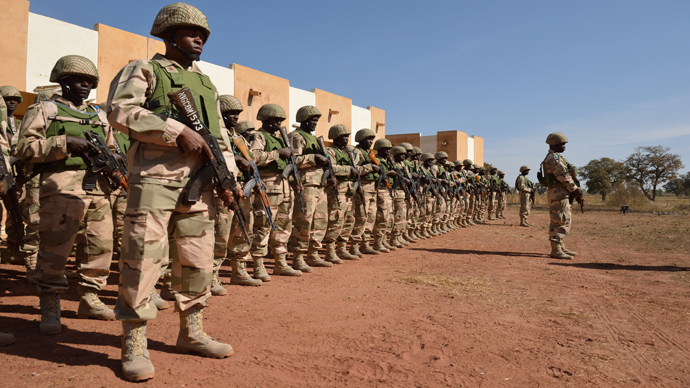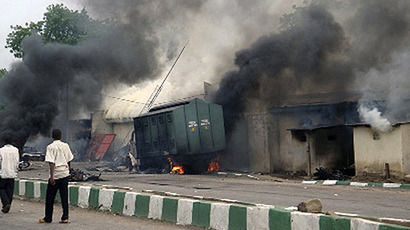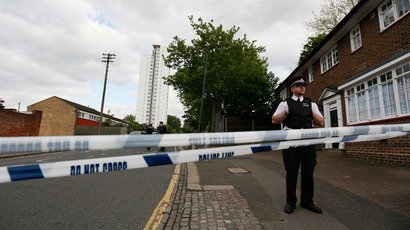Nigerian troops committing atrocities in fight against Islamic uprising - report

A Nigerian human rights watchdog released a report that says security forces are killing, torturing, illegally detaining and raping civilians in a fight to halt an Islamic uprising in northeast Nigeria that has killed nearly 2,000 people since 2010.
A Nigerian human rights watchdog released a report that says
security forces are killing, torturing, illegally detaining and
raping civilians in a fight to halt an Islamic uprising that has
killed nearly 2,000 people since 2010.
The report, put out by Nigeria’s National Human Rights Commission
on Sunday, said troops went on a rampage in the northeast of the
country after a soldier was killed in April in the fishing
village of Baga. Quoting police sources, the soldiers "started
shooting indiscriminately at anybody in sight, including domestic
animals.” the report said, as quoted by AP.
The retaliation left the homes of many villagers gutted and
torched, with troops attempting to hide evidence of the carnage
by disposing of bodies.
"The Commission equally received several credibly attested
allegations of gross violations by officials of the JTF (joint
task force of police and military), including allegations of
summary executions, torture, arbitrary detention amounting to
internment and outrages against the dignity of civilians, as well
as rape," it said.

Military officials said 36 people were killed, most of them
“extremist fighters.” Witnesses told AP at the time that
some 187 civilians were killed.
The report revealed the killings came after Islamic militants had
looted a weapons depot, with subsequent reports suggesting the
militants were becoming better armed and "had become both more
organized and emboldened by their apparent successes, despite the
enhanced security presence."
That contradicted reports that the military had taken control of
the region in an emergency operation canvassing thee states, or
roughly one-sixth of the country. Instead, it appears government
troops have pushed the Islamic insurgents into rocky territory
where it is more difficult to locate them. It is from these caves
and rugged hideouts that the extremists are attacking towns and
villages with regularity.
The government commission issued an interim report saying it
would determine when its investigators are able to visit the
conflict zone, where soldiers have cut mobile phone and internet
connections. Nigeria declared a state of emergency on May 14 when
extremists from the Boko Haram terrorist group took control of
some towns and villages.

The uprising poses the biggest threat in years to security in
Nigeria, Africa's most populous nation, with 160 million
citizens, and the continent's largest producer of oil.
Village communities trapped between the Islamic militants and
security forces "reportedly live in desperate fear and
destitution," the commission said.
It warned of an imminent threat to public health, as well as food
shortages since many farmers have been driven from their fields.
Northeast Nigeria is the poorest region in the country, with
government statistics showing 75 percent of the population lives
on less than $1 a day.














